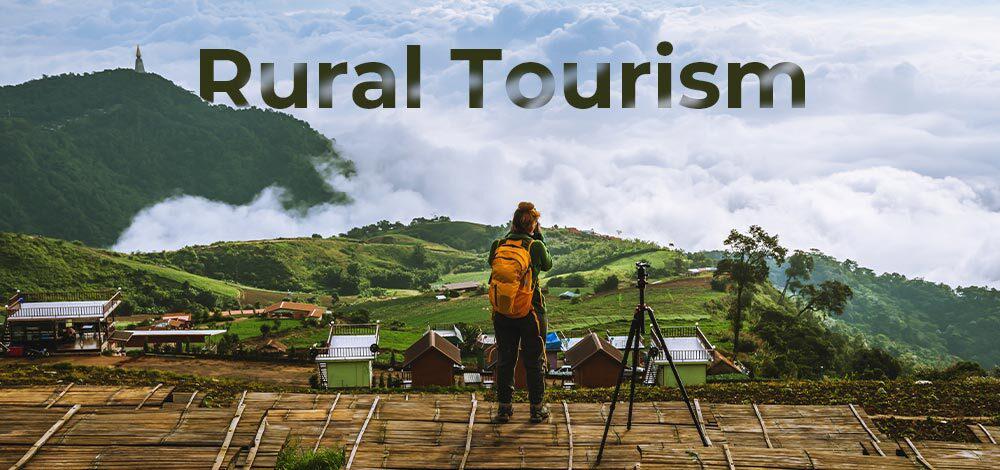The term “rural tourism” refers to tourism activities that take place in rural locations, usually away from cities or developed areas, and involve tourists engaging with the local way of life, the natural world, and outdoor pursuits. Visitors have the chance to discover and enjoy the distinctive qualities and charms of rural villages and landscapes through this sort of tourism, which frequently entails lodging in small, local enterprises like bed and breakfasts.
Rural Tourism
Rural tourism refers to the exploration of the rural flora and fauna and basically keeping the beauty of the rural diaspora in front of the world. In other words, Rural tourism is classified as a form of the tourist industry that provides an opportunity to showcase rural indigenous culture, life, and heritage in rural locations, as well as providing employment and other investment opportunities for local residents and allowing interaction with the host and guests for a more enhancing travel experience.
Types and Forms of Rural Tourism
Rural tourism comes in a variety of shapes and forms, some of which include:
- Agritourism may benefit rural areas economically by providing new sources of revenue for farmers and bringing visitors to the region. It can also assist to promote sustainable agriculture practices and educate the public about the value of agriculture in regional industries and food security.
- Ecotourism is a sort of tourism development that promotes ethical travel to natural regions in order to save the environment, help local people, and teach tourists about the natural world. Outdoor sports and experiences that allow tourists to see and enjoy the natural environment while reducing their influence on it are typical of ecotourism development.
- The tourism industry may assist in the promotion of cultural appreciation and comprehension of the protection of historic heritage places and the financial development of local communities. It may also aid in the promotion of sustainable tourism practices since many cultural tourism experiences are based on responsible travel concepts such as respect for local culture and environment, as well as encouragement for communities.
- Nature tourism allows tourists to discover and appreciate the beauty of natural ecosystems such as national parks, woods, rivers, mountains, and coastal locations. Many nature tourism activities are based on sustainable tourism principles and are meant to prevent the environmental effect of tourists while providing education and learning experiences.
These forms of rural tourism can be combined or offered as standalone experiences, depending on the resources and attractions available in the area.
Activities of Rural Tourism
Numerous activities are available in rural tourism that can provide tourists with special possibilities to experience and learn about the rural way of life. The following are a few examples of activities that can be provided in rural tourism:
- Visits to farms and other agricultural pursuits
- Nature hikes and strolls
- Observing wildlife and birds
- Hunting and fishing
- Riding a horse and riding in a coach
- Both mountain biking and cycling
- Kayaking, canoeing, and rafting are examples of water sports.
- Historical and cultural tours
- Tours and tastings of food and alcohol
- Artisanal & craft studios
- Workshops in painting and photography
- Educational events include workshops on producing cheese or bread
- Local events and festivals.
Text taken from: https://www.geeksforgeeks.org






